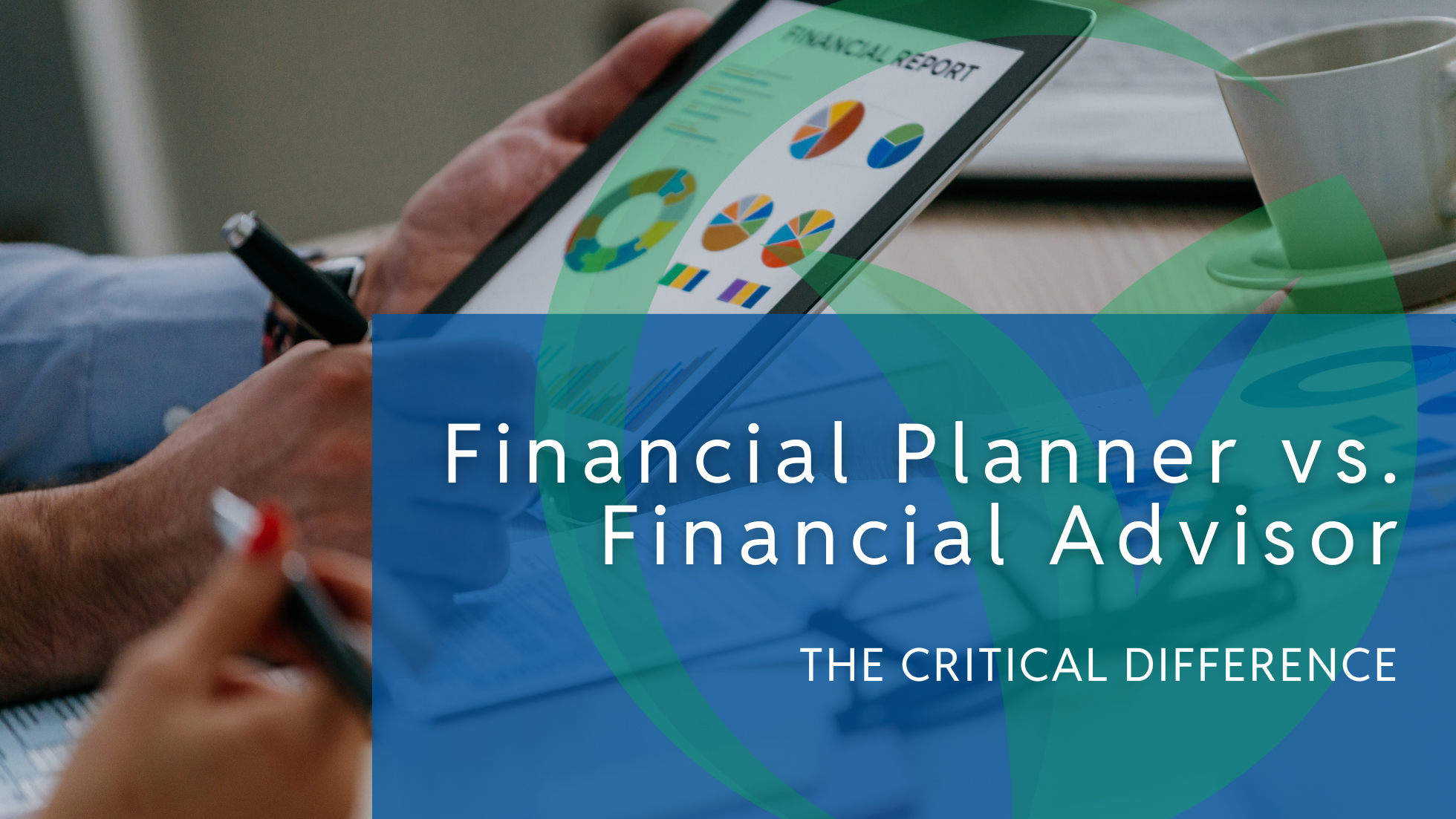
Is there a difference between the role of a financial planner and a financial advisor? I’m often asked this question by clients, prospective clients, and even friends. The short answer is yes, and it’s essential to know why. There are distinct advantages to working with a financial planner, especially if you’re taking a more holistic, long-term approach to your finances.
The roles “financial planner” and “financial advisor” are often used interchangeably, but that’s not necessarily correct. Financial advisors are generally part of a broad category of financial professionals who help clients manage money, including accountants, insurance agents, stock brokers, bankers, and financial planners.
Every financial planner is a financial advisor, but not every financial advisor is a financial planner. Please note that some financial professionals with the specific title of Financial Advisor may still be required to register with a Registered Investment Advisor (RIA)to provide advisory services.
A financial planner is a specialty professional who helps you set and manage the strategies needed to achieve your long-term financial goals, including your personal, family, and business interests. Where a financial advisor may have a narrower financial focus, like an insurance agent focusing on insurance or a money manager focusing on investments, financial planners tend to take a broader, more holistic approach, including:
Investment, savings, and cash management
Retirement and estate planning
Tax planning
Risk management
Our financial planning approach typically starts with a discovery and goal-setting process to understand where you are in your financial journey, where you want to go, and your risk tolerance. These steps are necessary so we can tailor our financial advice to your specific situation. Then we engage our proprietary Vita VIASM planning model, using cutting-edge technology to make data-driven decisions. The result is a long-term, comprehensive plan that may include all the components mentioned above.
Once your financial plan is in place, it becomes your roadmap, which you can implement and manage on your own or work with a financial planner (like me). Regardless of your decision, it’s important to monitor ongoing results, regularly revisit goals, and adjust the plan as you reach major milestones in your career, family, and life. Your financial plan needs to grow and evolve along with you.
Not all financial planners have the same credentials, so do some research before you make this significant life decision. Here are a few things to check:
Experience
Breadth and depth of experience beyond just investment management.
Tenure
Effective planning requires years of experience.
Fit
Do you share similar investment views and risk tolerance?
Team
Other planners and support staff who can help when your planner is unavailable.
Technology
This includes the tools you access to view your plan and account status.
Compensation
How they make money, including flat and ongoing fees, commissions, etc.
You can turn to various financial advisors for assistance with specific financial tasks. But when looking across your financial landscape to plan for the future of your family and business, a financial planner may be a better option. Would you like to learn more? Please get in touch with us for an introductory meeting.

